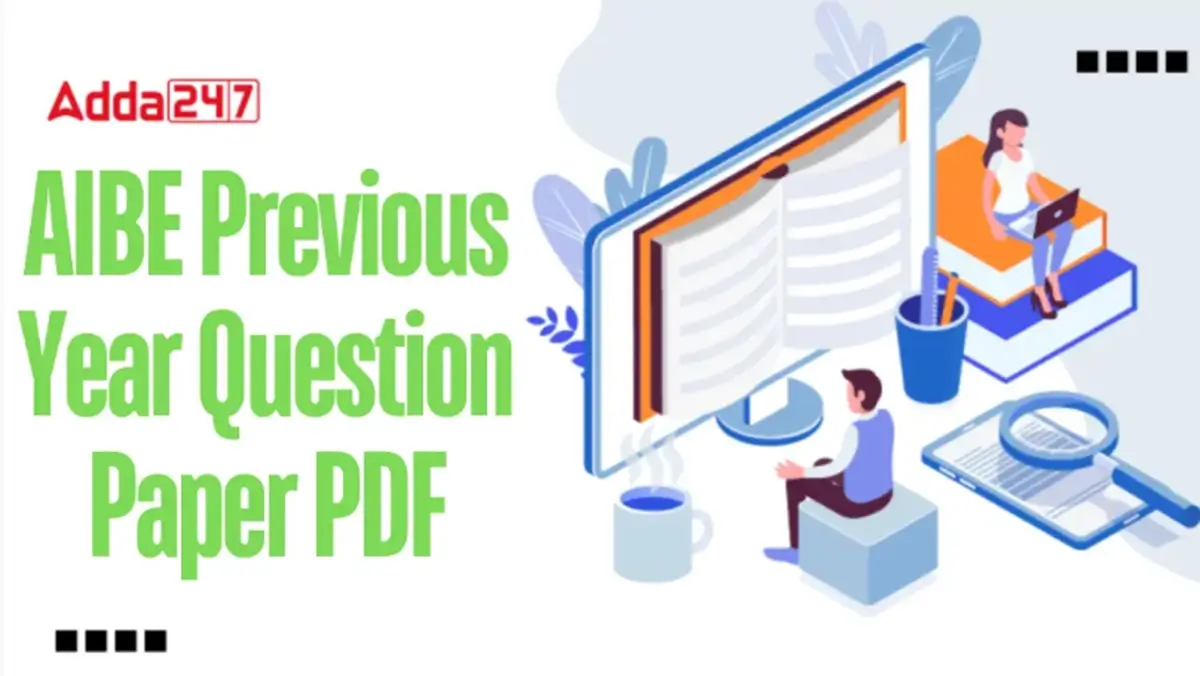Table of Contents
All India Bar Examination (AIBE) is conducted twice a year by the Bar Council of India (BCI) for law graduates seeking to practice as lawyers. Clearing this exam grants a Certificate of Practice that enables candidates to appear in court and work with administrative bodies. Previous Year Question Papers serve as one of the best resources for exam preparation. Through this article, we have provided the direct links to access all AIBE previous year papers. Practicing these papers will boost your confidence in the examination hall.
AIBE Previous Year Question Paper
Candidates can check their preparation by solving the AIBE Previous Year Question Paper of the All India Bar Examination (AIBE), aspirants can learn many important things, such as
- the exam difficulty level,
- the total number of questions,
- what types of questions will be asked, and more through the AIBE Previous Year Question Paper,
candidates will also be able to develop conceptual knowledge and improve their problem-solving skills through AIBE PYQs. Candidates can get the direct link to download the AIBE Previous Year Question Paper PDF further in the article.
AIBE Previous Year Question Paper PDF
Solving the AIBE Previous Year Question Paper will help you score good marks and if you pass, the candidates will receive the Certificate of Practice (COP) within 60 days, either from their State Bar Council or via the AIBESCOPE app. In this article, Law graduate students preparing for the AIBE exam can check the important highlights related to the AIBE Previous Year Question Papers in the table below.
| AIBE Previous Year Question Paper PDF: Overview | |
| Exam Name | All India Bar Examination |
| Conducted By | Bar Council of India (BCI) |
| Mode of Examination | Offline |
| Exam Frequency | Twice a year |
| Category | Previous Year Question Paper PDF |
| Status | Provided |
| Official Website | allindiabarexamination.com |
AIBE Previous Year Question Paper PDF Download Link
The AIBE previous year question papers in PDF format are mentioned below in the table. Law graduate students can easily access them by clicking on the links. Reviewing these papers helps candidates get familiar with the exam format and the level of questions.
| AIBE Question Paper PDF Download | |
| AIBE 19 Question Paper PDF Download | Download AIBE 19 Question Paper Here |
| AIBE 18 Question Paper PDF Download | Download AIBE 18 Question Paper Here |
| AIBE 17 Question Paper PDF Download | Download AIBE 17 Question Paper Here |
| AIBE 16 Question Paper PDF Download | Download AIBE 16 Question Paper Here |
| AIBE 15 Question Paper PDF Download | Download AIBE 15 Question Paper Here |
| AIBE 14 Question Paper PDF Download | Download AIBE 14 Question Paper Here |
| AIBE 13 Question Paper PDF Download | Download AIBE 13 Question Paper Here |
AIBE Exam Pattern 2025
Candidates must check the exam pattern to know the important details like exam duration, number of questions, marking scheme, etc. The previous year’s AIBE 18 Exam Pattern is mentioned below. Candidates must check the exam pattern to know the important details like exam duration, number of questions, marking scheme, etc.



 TSPSC Group 1 Question Paper 2024, Downl...
TSPSC Group 1 Question Paper 2024, Downl...
 TSPSC Group 1 Answer key 2024 Out, Downl...
TSPSC Group 1 Answer key 2024 Out, Downl...
 UPSC Prelims 2024 Question Paper, Downlo...
UPSC Prelims 2024 Question Paper, Downlo...





